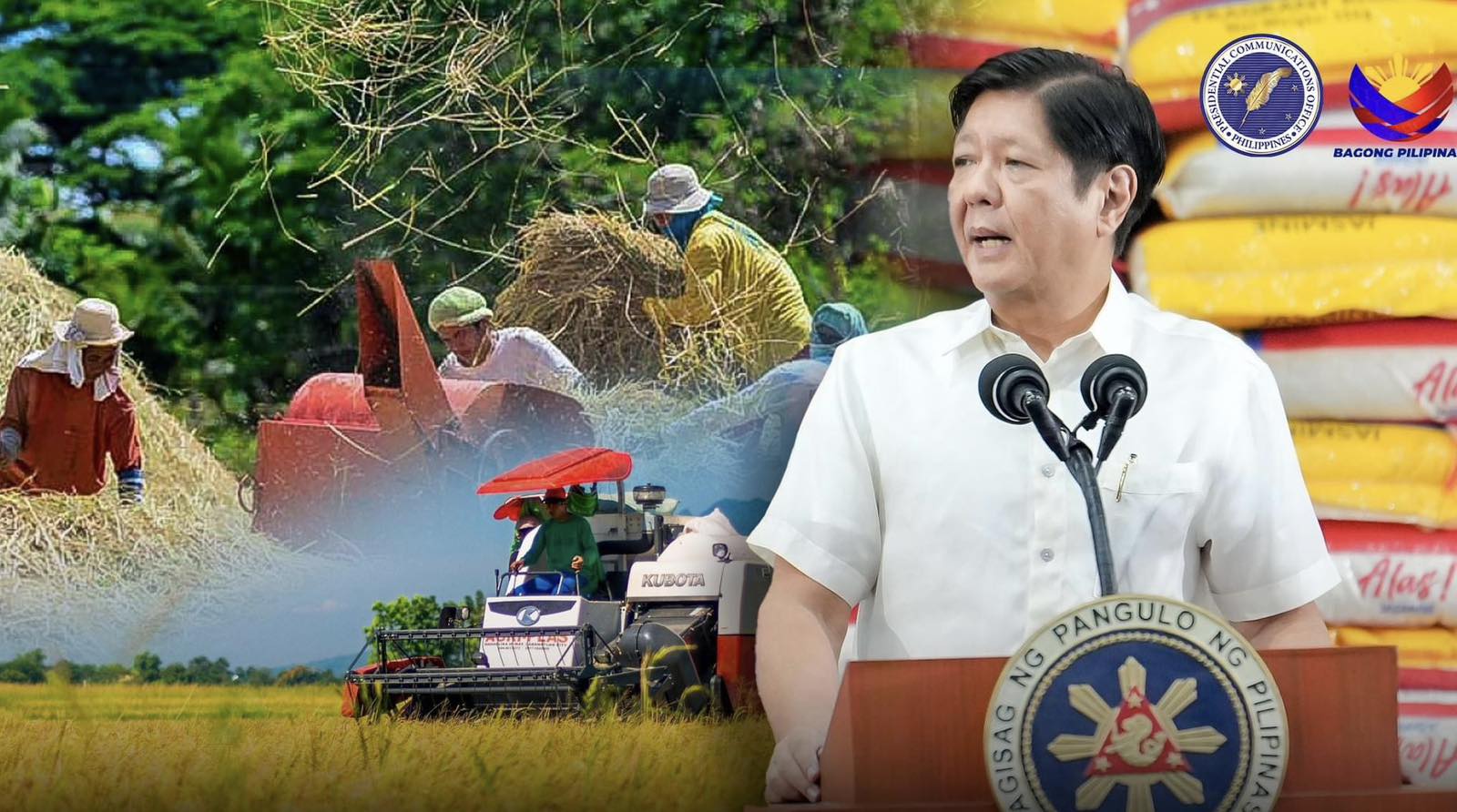No rice supply shortage despite food security emergency, DA assures
The Department of Agriculture (DA) maintained that there is no rice supply shortage in the country despite the recommendation to declare a food security emergency.
 President Ferdinand 'Bongbong Marcos Jr. (Photos from the Presidential Communications Office)
President Ferdinand 'Bongbong Marcos Jr. (Photos from the Presidential Communications Office)
DA spokesperson Assistant Secretary Arnel De Mesa explained during the Quezon City media forum on Saturday, Feb. 18, that the National Price Coordinating Council recommended to the DA the declaration of food security emergency because rice prices continue to be “elevated” in the market.
“But then again, we just would like reiterate: Wala pong kakulangan na supply ng bigas sa ating bansa (There is no rice supply shortage in our country),” he said.
He explained that there are two markers for the food security emergency declaration—the shortage of rice supply and the extraordinary increase in its prices.
Insisting that the first marker “does not exist,” De Mesa stressed that there is more than enough supply in the domestic market despite the lower production of 19.3 million metric tons compared to 20 million metric tons in 2023.
The local production, however, was being supported by the importation of almost 4.8 million metric tons of rice.
“Alam natin na ang dami nang ginawang hakbangin ng pamahalaan, ng DA ng DTI (Department of Trade and Industry), para bumaba ang presyo (We know that our government, the DA and DTI, have been taking steps to bring the prices down),” the DA official said.
These steps include the lowering of tariff from 35 percent to 15 percent and the “Kadiwa ng Pangulo” program.
“Despite all of these ay nananatiling elevated bagama’t mayroon tayong nararamdamang pagbaba (the prices remain elevated and though we are experiencing a reduction), but not to the level that we are expecting it to decrease,” De Mesa added.
He also disclosed that the DA is expected to declare a food security emergency on Jan. 22 after it received the copy of the resolution of the approval of the recommendation from the NPCC.
The DA would need to review the recommendation, which the official said would probably last until Tuesday, in time for the expected declaration on Wednesday.
The move to declare a food security emergency would allow the NFA to release buffer stock of rice to stabilize current prices.
Meanwhile, the spokesperson revealed that DA Secretary Francisco Tiu Laurel Jr. is currently looking into removing the “premium/special” rice labeling in markets and is also asking Congress to bring back the National Food Authority’s (NFA) mandates on regulation and market intervention.
He explained that sellers would normally label a 25-percent broken rice as premium or special to be able to sell them at a higher price.
“Iyon ang gustong tanggalin ni Secretary Kiko na alisin iyong premium at special at igaya doon sa standards ng ating importation iyong mga imported na bigas (That’s what Secretary Kiko wants to remove, the premium and special, and just make imported rice similar to our standards of importation),” De Mesa furthered.
Consumer should instead be able to choose rice varieties based on the countries where they were imported from, the percentage of broken, and the classification.
Broken rice is defined as damaged white rice. The lower the percentage of a rice being broken, the higher its quality is.
The DA official admitted that allowing premium or special rice labels in the markets result in abuse because “it will command a higher price which is not necessarily the case.”
He also lamented that some rice sellers mix up well-milled rice and regular rice with broken rice so they can sell them at higher prices.
This is why Laurel had been asking Congress to allow NFA to regulate and do market intervention.
“Para iyon nga, magkaroon ng regulasyon sa merkado, sa pamilihan at pangalawa, maka-intervene sa market without declaring an emergency (This way, there will be regulation in the market and secondly, it can intervene in the market without declaring an emergency),” De Mesa added.